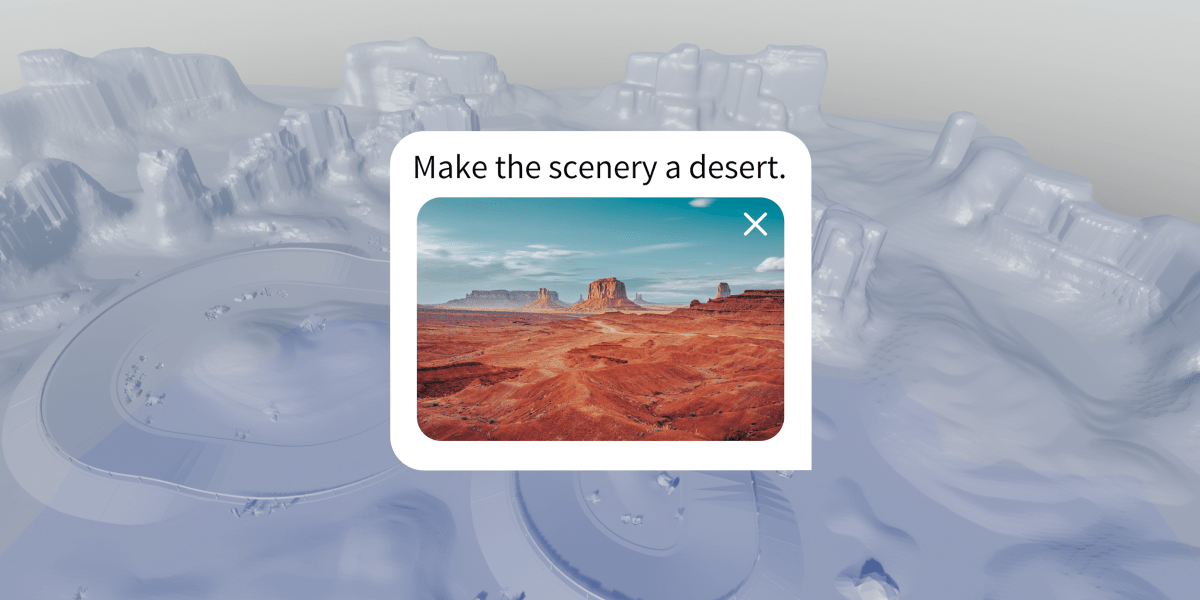What’s new: Roblox has announced plans to roll out a generative AI tool that will let creators make whole 3D scenes just using text prompts. Users will also be able to modify scenes or expand their scope—say, to change a daytime scene to night or switch the desert for a forest.
How it works: Once it’s up and running, developers on the hugely popular online game platform will be able to simply write “Generate a race track in the desert,” for example, and the AI will spin one up.
Why it’s a big deal: Although developers can already create similar scenes like this manually in the platform’s creator studio, Roblox claims its new generative AI model will make the changes happen in a fraction of the time. It also claims that it will give developers with minimal 3D art skills the ability to craft more compelling environments. Read the full story.
—Scott J Mulligan
Ray Kurzweil: Technology will let us fully realize our humanity
—Ray Kurzweil is a technologist and futurist and the author, most recently, of The Singularity Is Nearer: When We Merge with AI. The views represented here are his own.
By the end of this decade, AI will likely surpass humans at all cognitive tasks, igniting the scientific revolution that futurists have long imagined. Our plodding progress in fields like robotics, nanotechnology, and genomics will become a sprint.
But our destiny isn’t a hollow Jetsons future of gadgetry and pampered boredom. By freeing us from the struggle to meet the most basic needs, technology will serve our deepest human aspirations to learn, create, and connect.
This sounds fantastically utopian, but humans have made such a leap before. Our hunter-gatherer ancestors lived on a razor’s edge of precarity. While modern life can often feel like a rat race, to our paleolithic ancestors, we would seem to enjoy impossible abundance and freedom. But what will the next leap look like? Read the full story.

